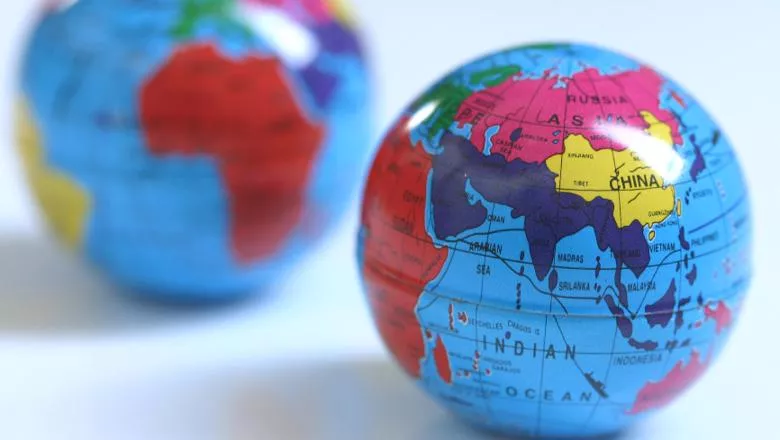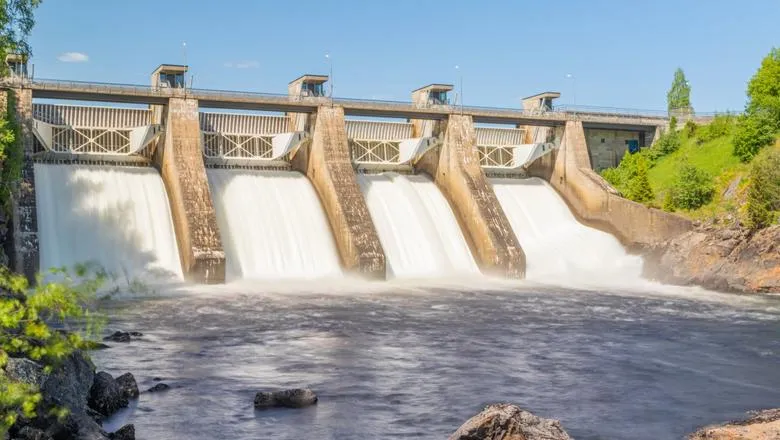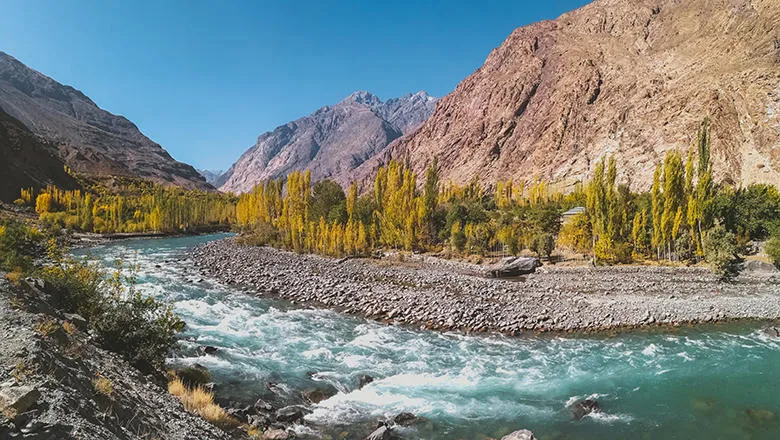
Biography
Dr Arnout van Soesbergen is a physical geographer with broad research interests in hydrology, land-use change modelling, ecology, biodiversity conservation and ecosystem services.
He completed his PhD on the impacts of climate change on water resources of global dams at the Department of Geography in 2013. He has a MSc in Eco-hydrology and Environment and Resource Management, both from the VU University Amsterdam. During his PhD, he worked on modelling water resources and developing policy support systems in the Andes as part of the Challenge Programme on Water and Food (CPFW).
Prior to his PhD, Arnout worked at the Institute for Environmental Studies in Amsterdam where he worked on projects around Payments for Ecosystem Services and hydro-economic modelling.
In addition to his role at King's, he also holds a position as Senior Ecosystem Services Scientist at the UN Environment Programme World Conservation Monitoring Centre (UNEP-WCMC) the biodiversity assessment arm of the United Nations Environment Programme, based in Cambridge, UK.
Research
- Agriculture, land use change and climate change impacts on water and ecosystems
- Freshwater biodiversity mapping and modelling
- Earth observation, Geographic Information System (GIS) and modelling
- Biodiversity conservation and ecosystem services
- Low-cost environmental monitoring
Arnout's current research focuses on integrating data, models and low-cost environmental sensors to better understand the role of nature based solutions in mitigating climate and other environmental (e.g. air and noise pollution) risks as part of the Horizon2020 funded project ReSET.
Further details
Research

King's Water Centre
Researching water, environment and development. Our centre spans the humanities, social, and physical sciences to explore the challenges of water governance from global to local scales.
News
Under Pressure: New database aims to improve understanding of the impacts of dams and reservoirs
With an explosion in hydroelectric dam and reservoir building expected over the coming decades, a new tool jointly developed at King’s aims to help...

Less than 20% of the global land area needed for human well-being and biodiversity is currently protected
Conserving about half of the global land area could maintain nearly all of nature’s contributions to people and still meet biodiversity targets for tens of...

Progressive water policy needs to be intrinsically linked to human rights and sustainability
King’s Water Centre has launched four policy papers that explore how we can ensure we have a just and sustainable water future.

Clean water and carbon storage will be vital for biodiversity
A new paper, published in Nature, Ecology and Evolution, has found that protection of land important to both carbon sequestration and clean water supply is...

More than 160,000 miles of rivers at risk of losing "free-flowing" status
More than 160,000 miles (~257,000 km) of rivers are in danger of losing their “free-flowing status” as a result of proposed new hydropower dam construction,...

Only one-third of the World's longest rivers remain free-flowing
New research finds only 37% the world’s longest rivers remain free-flowing thanks to the increase in artificial dams and reservoirs.

Events

Clean Air Day: walking tour of Strand Aldwych pollution monitoring stations
Join Professor Mark Mulligan and Dr Arnout van Soesbergen on a guided tour of the Strand Aldwych project and the network of weather and pollution monitoring...
Please note: this event has passed.
Research

King's Water Centre
Researching water, environment and development. Our centre spans the humanities, social, and physical sciences to explore the challenges of water governance from global to local scales.
News
Under Pressure: New database aims to improve understanding of the impacts of dams and reservoirs
With an explosion in hydroelectric dam and reservoir building expected over the coming decades, a new tool jointly developed at King’s aims to help...

Less than 20% of the global land area needed for human well-being and biodiversity is currently protected
Conserving about half of the global land area could maintain nearly all of nature’s contributions to people and still meet biodiversity targets for tens of...

Progressive water policy needs to be intrinsically linked to human rights and sustainability
King’s Water Centre has launched four policy papers that explore how we can ensure we have a just and sustainable water future.

Clean water and carbon storage will be vital for biodiversity
A new paper, published in Nature, Ecology and Evolution, has found that protection of land important to both carbon sequestration and clean water supply is...

More than 160,000 miles of rivers at risk of losing "free-flowing" status
More than 160,000 miles (~257,000 km) of rivers are in danger of losing their “free-flowing status” as a result of proposed new hydropower dam construction,...

Only one-third of the World's longest rivers remain free-flowing
New research finds only 37% the world’s longest rivers remain free-flowing thanks to the increase in artificial dams and reservoirs.

Events

Clean Air Day: walking tour of Strand Aldwych pollution monitoring stations
Join Professor Mark Mulligan and Dr Arnout van Soesbergen on a guided tour of the Strand Aldwych project and the network of weather and pollution monitoring...
Please note: this event has passed.
